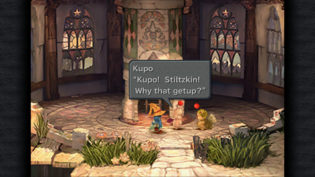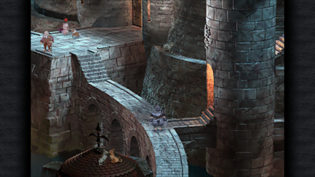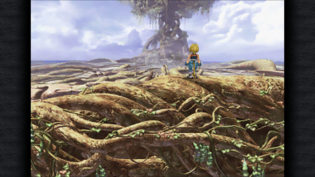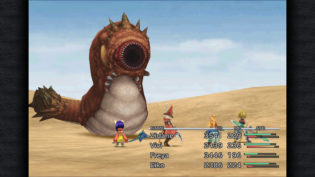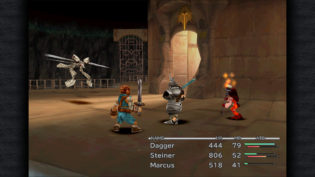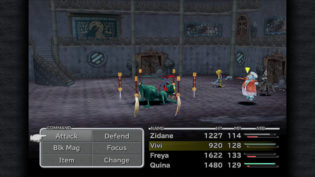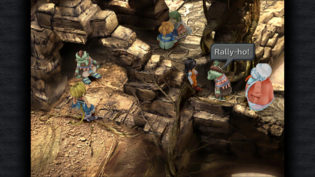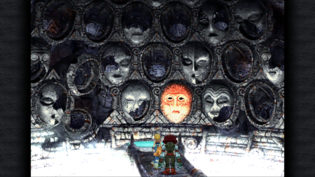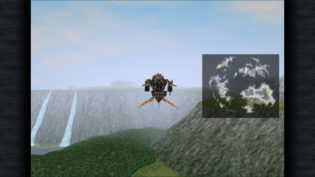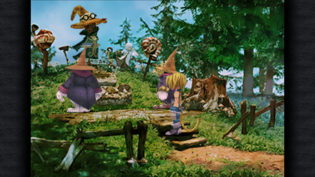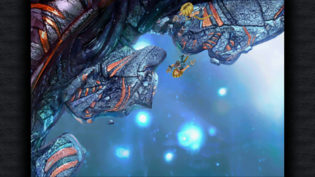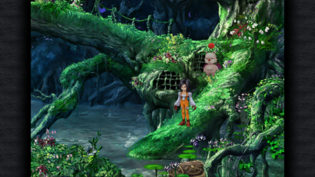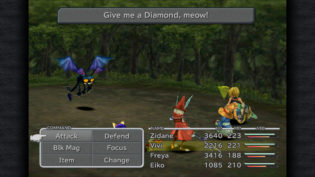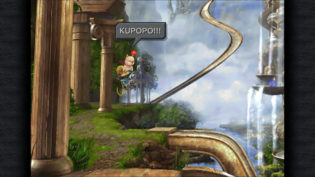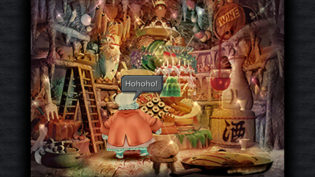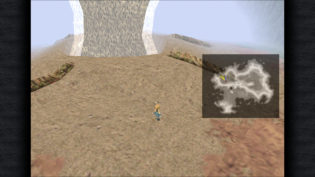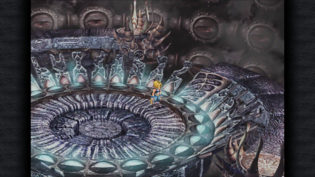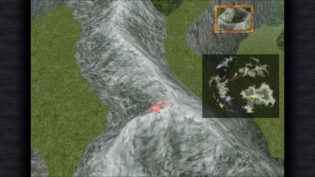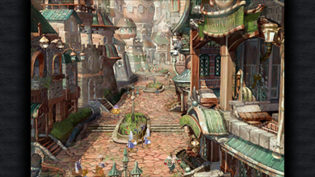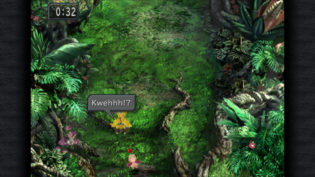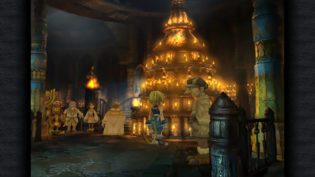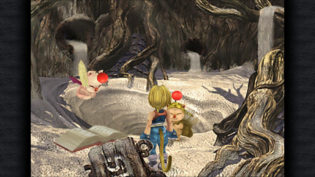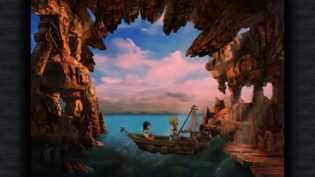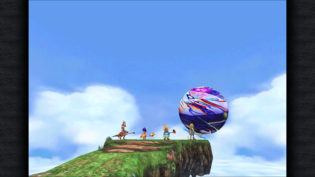O tempora is a series of retrospective posts where I play games from ages before to see if they stood the test of time.
Well, it finally happened. Barring the online-only entries and Final Fantasy XVI (that is not yet out on PC), I’ve played/replayed all numbered entries in the series. And last one to do was the one that I usually named as my favorite. I was a bit scared about replaying Final Fantasy IX, not just because I knew that the PC port is rather average at best, but also because I had such good memories of the game, yet also remembered that there was a lot about it to get frustrated with. I was afraid that it won’t live up to my memory. But no, while it does indeed have a lot of things to criticize, it remains one of my favorite entries in the series and an easy recommendation.
In a way, Final Fantasy IX was meant to be a big sendoff to an entire era of the franchise. It apparently entered development before FFVIII was out and at the same time there were already ideas for the first PS2 game that would become FFX. The direction for the franchise future would surely move towards more cinematic storytelling, more modern elements in the plot and voice acting, so the final game on Playstation 1 would become an embodiment of everything the franchise has been before this happens. Return to a more dark fairy tale style of story, fantasy setting, stylized characters and artwork, plot callbacks to memorable elements of previous games. And the return of the importance of the overworld exploration, after it has been barely interesting in FFVII and almost pointless in FFVIII. It was a huge thank you to the fans and a perfection of a lot of beloved mechanics the franchise had.
As a final game to utilize the classic Active Time Battle system (not counting X-2, where it’s heavily modified), FFIX contains the most conceptually realized example of the concept. Limit Break mechanic returns in a form of Trance and behaves closer to how it did in FFVII. Status effect usage is less pronounced in comparison to FFVIII, but it’s still important and has some cool nuances. Changing rows mid-fight is back (after the concept being completely absent in the previous game) and can be important depending on your playstyle and situation. Summons are back as a more simpler concept, reminiscent of FFIV and V. We even get the classic party of four, instead of three as it was in the other two numbered Playstation 1 entries.
The way passive and active abilities are learned is like a perfected version of Magicite from FFVI and Materia from FFVII, with lessons from FFV job mastering and FFVIII GF abilities taken into consideration. Party members are once again given a clear job (a character class in FF games) in a move away from the previous several entries, where anyone could theoretically be anything. And the fact that one of the main characters that is usually unremovable from the party is a thief by job also means that this is possibly the only mainline FF game where it is easy and often beneficial (and fun) to constantly use Steal ability.
As it was the case with all PS1 titles, this game is also a mini-games galore, with several mini-games and optional activities being available for the majority of the game. With the chocobo one being, probably, my favorite FF mini-game conceptually. In practice… well, I’ll get to that. The card collecting game returns, though with new rules and on top of that, there are many other potential activities, though a lot of them exist for only a very small amount of time and disappear forever once the story moves on.
Speaking of – the story of Final Fantasy IX is very solid, while the storytelling is absolutely fantastic. And while I’d argue, that the highs of this game might not be quite as high as the highs in FFVII or FVIII, but also the lows of it are rare and in general higher than the lows of the other two PS1 games. The pace of the story is fantastic, almost every character is extremely likeable and interesting (with basically just one clear exception and one mostly humorous character), the presentation is immaculate and soundtrack extremely good. Music, I would say, also has less extremely memorable tracks than its predecessors, but when the track is great, it’s among the best in the franchise.
Yet, even decades ago when I was playing the game for the first time there was one big and constant issue I had with it – a lot of things in the game take way longer than they should. Even if you are just playing the main story and ignoring all side activities, so the pace of the story is almost flawless, you are engaging in fights. And every action, every magic spell, every summon takes ages to start and finish. I mean, they do look very beautiful, but if you have to enter a fight, then wait half a minute til your black mage gets to cast one spell that will take off 1/6th of enemy configuration health, it gets somewhat tedious after a while. Same goes for the mini-games – as I’ve mentioned, the chocobo mini-game is extremely fun in concept, but in practice it’s very grindy and simply takes a lot of time. Or the frog catching that has a simulation of frogs reproducing in a location tied to it that is happening in real time for absolutely no reason whatsoever other than to take time…
When things are not just taking forever, it might be very unclear or obtuse as well. Most of the side quests in the game at least start well and aren’t as ridiculously stupid as the ones in FFVIII, but almost all of them by the end have some hidden thing that you’re probably never going to figure out on your own. Which was seemingly done just so people buy guidebooks or subscribe to the service Squaresoft had at that time. It really didn’t need to be like this, especially since almost every time the actual thing you have to do or the plot you learn is genuinely good. It’s just the knowledge about it existing or the mechanics of how it works is impossible to know. Even the card game, that I didn’t like much (and I don’t like the cards in FFVIII either), has a bunch of extremely complicated hidden rules to it that the game refuses to explain and even when you know them, they’re really bad and basically depend on pure chance more than anything.
Some of it could’ve been fixed or at least lessened with the port, but instead a lot of the things are made even worse with the PC version. Some quality of life elements are just worse than they were in the original PS1 version more than 20 years ago. Some things are slightly broken in comparison to how the game used to work – for example all beautiful pre-rendered cutscenes end with the sound being abruptly cut instead of fading out. Some additions are either pointless or unusable. There’s an autosave that has rules I haven’t figured out and it can’t be loaded manually, but the main menu has the “Continue” option that loads it and only it – so if you have a more recent manual save, this menu option will not load it and will load an older autosave instead. You can’t even adjust the volume of the game that is ridiculously high and cloud saves are done in a bizarre roundabout way. Oh and all of the special “speed up” and the like special actions that a lot of modern re-releases of classic jRPGs have are done just for grinding, using them for just slightly speeding up a slow moment is too inconvenient and pointless.
Also if you are a completionist type – please ignore all of the achievements and completionist stuff when you play the game for the first time. It is theoretically possible to do everything in one go, though hard, but you will completely ruin the experience with the game. Some of the challenges were already part of the game and were intended for repeat playthroughs (like a special reward for getting to the end game very fast), but some of the achievements make zero sense at all. Like – there are several of them that reward you for playing the game straight up wrong and some are just grindy for absolutely no reason. Killing 10k enemies? Why? I’ve done almost everything imaginable in the game and did some intentional grinding and only killed around 2k. So – just either play the game later for the dumb achievements, after you’ve enjoyed it as intended once, or ignore all of them, because they’re dreadful.
It’s a shame the current best version of the game is such a poor port of the game and it is a shame that the title itself has some rather poor design choices that weren’t good even in 2000. Because Final Fantasy IX really is one of the best entries in the franchise and I wish there was a version that would make its best moments shine brighter and polish out some of its weakest points. Nonetheless, I stand by my old opinion that this game is among the best entries in the series and a must play for anyone who likes Final Fantasy. While Final Fantasy IV might be the easiest jump on point for those who didn’t play FF before, FF IX might be the close second if you want to understand what classic Final Fantasy was about.


